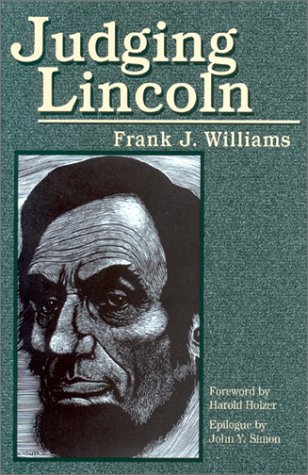

Most ebook files are in PDF format, so you can easily read them using various software such as Foxit Reader or directly on the Google Chrome browser.
Some ebook files are released by publishers in other formats such as .awz, .mobi, .epub, .fb2, etc. You may need to install specific software to read these formats on mobile/PC, such as Calibre.
Please read the tutorial at this link. https://ebooknice.com/page/post?id=faq
We offer FREE conversion to the popular formats you request; however, this may take some time. Therefore, right after payment, please email us, and we will try to provide the service as quickly as possible.
For some exceptional file formats or broken links (if any), please refrain from opening any disputes. Instead, email us first, and we will try to assist within a maximum of 6 hours.
EbookNice Team

Status:
Available5.0
23 reviewsJudging Lincoln collects nine of the most insightful essays on the topic of the sixteenth president as written over the past twenty years by Frank J. Williams, chief justice of the Rhode Island Supreme Court and one of the nation’s leading authorities on Abraham Lincoln. For Judge Williams, Lincoln remains the central figure of the American experiencepast, present, and future. With this collection, he boldly reassesses Lincoln’s legacy as we enter the twenty-first century.
Williams begins with a survey of the interest inand influence ofLincoln both at home and abroad and then moves into an analysis of Lincoln’s personal character with respect to his ability to foster relationships of equality among his intimates. Collectively, these first two sections demonstrate that the president’s international legacy as the Great Emancipator is well deserved.
The third section addresses Lincoln’s leadership abilities during the span of his career, with particular emphasis on the Civil War. Classifying Lincoln’s leadership has been difficult, as he could at times adopt the stance of autocrat or democrat, conservative or liberal, idealist or Machiavellian. Williams defends the value of each stance within its historical context. Next, Williams enters into a qualitative comparison between Abraham Lincoln, Franklin Delano Roosevelt, and Winston Churchill to explain why Lincoln not only ranks as America’s greatest leader but also holds that same position among the pantheon of all the world’s democratic leaders.
Williams concludes this volume with an essay (written with Mark E. Neely Jr.) on collecting Lincoln artifacts as another means of preserving and fostering the Lincoln legacy. The quality of Williams’s own extensive collection is evidenced by the forty-nine illustrations included in this book from the Frank and Virginia Williams Collection of Lincolniana.